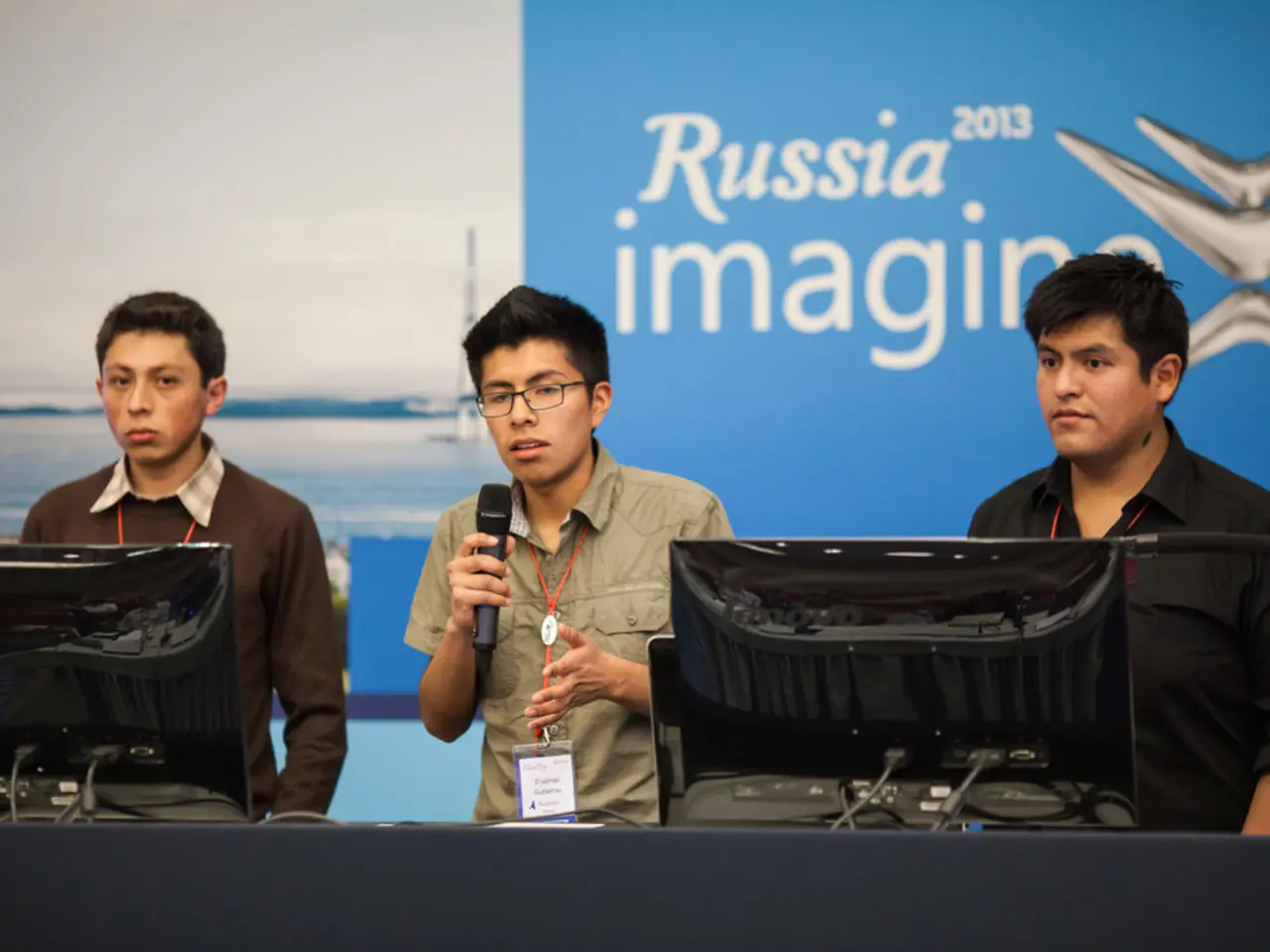Government entities in Russia urge citizens to safeguard their Telegram accounts
Russian authorities have taken a firm stance against foreign messaging apps like Telegram and WhatsApp, implementing partial restrictions on voice calls to combat criminal activities such as extortion, fraud, and involvement in sabotage and terrorism.
The move comes as Russian authorities have expressed concerns over the growing use of these platforms by scammers to extort money and attract Russians to subversive and terrorist activities. According to the Ministry of Digital Development, this shift in criminal behaviour is a response to the ongoing fight against cybercrime.
In a recent statement, Telegram founder Pavel Durov revealed that the platform has "irrefutable evidence" that the authors of certain channels published defamatory materials and then deleted them for money. Durov added that some of these channels were caught selling what is known as a "block on negativity."
The restrictions on voice calls are not the only measures being taken. Russian authorities have also demanded that messenger services share critical information with law enforcement. However, Telegram and WhatsApp have resisted or partially complied, leading to increased regulatory pressure.
To further enhance security, Russian authorities are recommending the use of two-factor authentication (2FA). While the specific regulations on 2FA from the MVD, Central Bank, and Ministry of Digital Development are not explicitly detailed, the emphasis on security through encryption and fraud prevention implies that 2FA is a recommended standard security measure.
In addition, users are encouraged to take several precautions to protect their accounts. It is advised not to store important data in the "Favorites" tab, to regularly check the list of devices with account access and clear the cache, and to disable calls from unknown numbers.
On August 11, Telegram reported receiving hundreds of reports of fraud and blackmail. In response, the platform blocked dozens of channels engaged in doxing and extortion.
The MVD and CB also recommend setting up two-factor authentication to further secure accounts. Despite the restrictions, access to calls in Telegram and WhatsApp will be restored if the services comply with Russian laws.
This crackdown on foreign messaging apps is part of a broader strategy of internet control in Russia, including blocking unfavourable platforms like YouTube, increasing censorship, and pushing domestic solutions to reduce reliance on foreign services. Russia is encouraging the use of its government-controlled messaging platform, MAX, which requires pre-installation on smartphones sold in Russia and includes provisions for data sharing with authorities.
In summary, Russian authorities have enacted partial restrictions on Telegram calls to combat crime, require stricter control over data sharing, and push domestic apps like MAX. Although explicit 2FA regulations are not specified, security recommendations presumably include enabling two-factor authentication to mitigate fraud risks. Users are advised to be cautious with unfamiliar links or files, to hide their number to reduce the risk of fraudulent messages, and to regularly check and secure their accounts.
- In light of the increasing use of messaging apps in financial scams and business fraud, the Ministry of Digital Development in Russia suggests that users should enable two-factor authentication (2FA) for enhanced account security.
- As the Russian government pushes for stricter control over data sharing, telecommunication companies such as Telegram and WhatsApp have experienced regulatory pressure due to their reluctance to comply with demands for critical information required by Russian authorities, potentially affecting the general-news landscape and technology sector.




